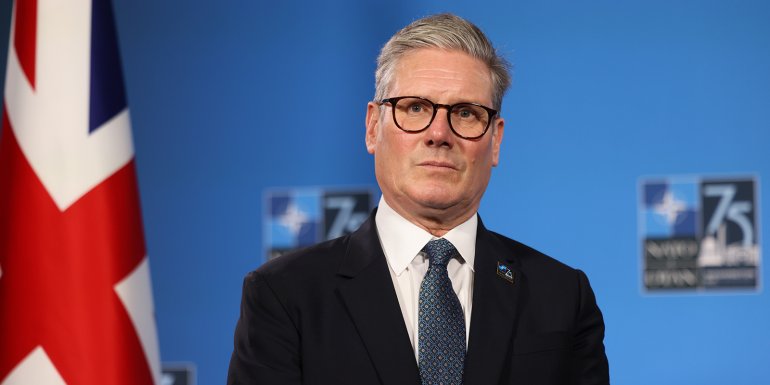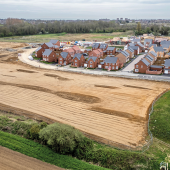What does Labour's victory mean for the engineering sector?

Key players in the engineering sector have responded to the General Election result after the Labour Party won a thumping majority on 4 July.
In a blog post for the Institute for Mechanical Engineers, Dr Laura Kent, Public Affairs and Policy Advisor, highlighted Labour’s key manifesto pledges for engineering across clean energy, industrial strategy, transport strategy, and education and skills. She welcomed Labour's new industrial strategy, which will establish the National Infrastructure and Service Transformation Authority to oversee major projects, and improving rail connectivity across the north of England. "The proposed industrial strategy signifies a structured, long-term approach to infrastructure and industrial development that has been long asked for," she said.
Labour plans to introduce a new industrial strategy that will "end short-term economic policymaking". It will establish an industrial strategy council that will provide expert advice to the government to help it shape the strategy going forward.
Dr Joe Marshall, Chief Executive of the National Centre for Universities and Business (NCUB), said: "Innovation should be at the forefront of the government's economic plan to recover and should form the base of the new industrial strategy. We hope the new government starts as it means to go on. We need strong and decisive action if we are to be a true competitor in the global research and development market, as well as developing the workforce skills needed for future success."
Ed Almond, CEO of the Institute for Engineers and Technologists (IET), welcomed the new government and identified specific opportunities for the sector around decarbonising to reach net-zero and ensuring a competitive and resilient innovation sector through an industrial strategy backed by a secure skills pipeline.
EngineeringUK Chief Executive Hilary Leevers commented: "As the new government has rightly recognised, we need to nurture a greater pool of talent in engineering and technology including more apprenticeship opportunities for young people, to meet current demand and to help our economy to thrive and to achieve our net zero goal."
On planning, Britain's first female Chancellor Rachel Reeves said the system needs to change. "If we are to put growth at the centre of our planning system, that means changes not only to the system itself, but to the way that ministers use our powers for direct intervention." She said that benefits of schemes will be the central factor for ministers when deciding on planning applications.
Drawing on comments from a range of industry leaders, New Civil Engineer declared that the "civil engineering sector has uniformly said it is standing by to support Labour’s ambitions". It noted that the sector has honed in on infrastructure delivery, energy transition, and planning reform as three areas in which it can work with the new government to deliver infrastructure projects at scale and achieve its growth mission.
Starmer appoints new cabinet
In one of his first acts as Prime Minister, Sir Keir Starmer unveiled his 25-strong cabinet. As well as Rachel Reeves, appointments included Bridget Phillipson as Education Secretary, Angela Rayner as Deputy PM and Housing Secretary, and Yvette Cooper as Home Secretary.
Jacqui Smith, former Home Secretary under Gordon Brown and an education minister under Blair, was named Minister for Skills, Higher Education and Further Education). Smith is expected to be awarded a peerage in order to lead on skills reform from the House of Lords, under a unified skills and HE brief. Separately, Catherine McKinnell was appointed as the Minister for Schools, continuing from her shadow ministerial brief.
Starmer also appointed Sir Patrick Vallance, former Chief Scientific Adviser to the Government from 2018 to 2023, as Minister of State in the Department for Science, Innovation and Technology. Previous Science Ministers have typically come from political backgrounds as MPs rather than being experts in their field, so this appointment is particularly notable.
Picture by Simon Dawson / No 10 Downing Street © Crown Copyright.









